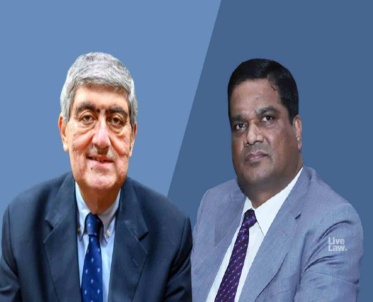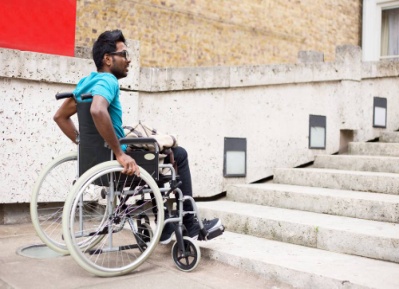
RIGHT TO RESERVATION IN PROMOTION FOR PwDs
RIGHT TO RESERVATION IN PROMOTION FOR PwDs

The Supreme Court of India has recently held that persons with physical disabilities have the right to reservation in promotions also. A disabled particular person can avail the advantage of reservation for promotion even when she or he was recruited within the common class or developed the incapacity after gaining employment.
ABOUT THE CASE
The case was based on a claim under the Persons with Disabilities (Equal Opportunities, Protection of Rights and Full Participation) Act, 1995. This Act has been replaced with the Rights of Persons with Disabilities Act 2016. The Kerala Administrative Tribunal rejected the plea of applicant stating that the rule of Recruitment in the State of Kerala, General Rules and other orders issued by the Government under Section 32 of the 1995 Act did not provide for any reservation in promotions. The Kerala High Court set aside the decision of the Kerala Administrative Tribunal.
IMPORTANCE OF JUDGMENT
The 1995 Act recognizes the right to reservation in promotion. Identification of posts for reservation as per Section 32 of the 1995 Act is a prerequisite for appointment; but appointment cannot be frustrated by refusing to identify posts. The absence of provision for reservation in the recruitment rules will not defeat the right of a PwD as such right flows from the legislation. Reservation to promotion can be given to a PwD even if the person was not originally appointed in the PwD quota. Further, the responsibility to provide equal opportunities to disabled persons does not end with giving them reservation at the time of recruitment. Legislative mandate provides for equal opportunity for career progression, including promotion. Thus, it would be negation of the legislative mandate if promotion is denied to PwD and such reservation is confined to the initial stage of induction in service. This would in fact result in stagnation of the disabled in a consequential frustration.
RIGHT OF PERSONS WITH DISABILITIES ACT 2016

It fulfills the obligations to the United Nations Convention on the Rights of Persons with Disabilities (UNCRPD), to which India is a signatory. Disability has been defined based on an evolving and dynamic concept. The types of disabilities have been increased from 7 to 21. The Act added mental illness, autism, spectrum disorder, cerebral palsy, muscular dystrophy, chronic neurological conditions, speech and language disability, thalassemia, hemophilia, sickle cell disease, multiple disabilities including deaf blindness, acid attack victims and Parkinson’s disease which were largely ignored in earlier act. In addition, the Government has been authorized to notify any other category of specified disability.
It increases the quantum of reservation for people suffering from disabilities from 3% to 4% in government jobs and from 3% to 5% in higher education institutes. Every child with benchmark disability between the age group of 6 and 18 years shall have the right to free education. Government funded educational institutions as well as the government recognized institutions will have to provide inclusive education. Stress has been given to ensure accessibility in public buildings in a prescribed time frame along with the Accessible India Campaign. The Chief Commissioner for Persons with Disabilities and the State Commissioners will act as regulatory bodies and Grievance Redressal agencies, monitoring implementation of the Act. A separate National and State Fund will be created to provide financial support to the persons with disabilities.
CONSTITUTIONAL FRAMEWORK FOR DISABLED IN INDIA

Article 41 of the Directive Principles of State Policy (DPSP) states that State shall make effective provision for securing right to work, to education and to public assistance in cases of unemployment, old age, sickness and disablement, within the limits of its economic capacity and development.
State Subject: The subject of ‘relief of the disabled and unemployable’ is specified in the state list of the Seventh Schedule of the constitution.
CONSTITUTION & RESERVATIONS PROVISION
77th Constitutional Amendment Act, 1995: The Indra Sawhney verdict had held there would be reservation only in initial appointments and not promotions. However, addition of the article 16(4A) to the Constitution, empowered the state to make provisions for reservation in matters of promotion to SC/ST employees, if the state feels they are not adequately represented.
81st Constitutional Amendment Act, 2000: It introduced Article 16(4B), which says unfilled SC/ST quota of a particular year, when carried forward to the next year, will be treated separately and not clubbed with the regular vacancies of that year.
85th Constitutional Amendment Act, 2001: It provided for the reservation in promotion can be applied with ‘consequential seniority’ for the government servants belonging to the SCs and STs with retrospective effect from June 1995.
102nd, 103rd and 104th Amendments: In the last couple of decades, there have been several amendments to the constitution like the 102nd amendment, 104th amendment. 10% reservation for EWS. was made by the 103rd amendment to the Constitution.
Article 335: It says that the claims of SCs and STs shall be taken into consideration constituently with the maintenance of efficacy of the administration.
TEST YOURSELF
Q.1 Consider the given options & state which of the following is/are which of the following Acts has been replaced by Rights of Persons with Disabilities Act 2016?
- Persons with Disabilities (Equal Opportunities, Protection of Rights and Full Participation) Act, 1995: ANSWER
- Right of Persons with Physical Disability & Equal protection of Rights Act, 1998.
- Rights of Persons with Disabilities Act 2005.
- None of the following
Q.2 Consider the following statements and state which of the following is/are incorrect in the reference to the Rights of Persons with Disabilities Act 2016?
- It fulfills the obligations to the United Nations Convention on the Rights of Persons with Disabilities (UNCRPD), to which India is a signatory.
- The types of disabilities under the Rights of Persons with Disabilities Act 2016 have been increased from 7 to 15.
- Only I follows
- Only II follows: ANSWER
- Both I & II follows
- None of the following
Q.3 Under which of the following Articles it says that States shall make effective provision for securing the right to work, to education and to public assistance in cases of unemployment, old age, sickness and disablement, within the limits of its economic capacity and development?
- Article 16 of Fundamental Rights
- Article 32 of Fundamental Rights
- Article 39A of Directive Principles of State Policy
- Article 41 of Directive Principles of State Policy: ANSWER
Q.4 Consider the following statements & state which of the following is correct in the context of the landmark judgment of 'Indra Sawhney v. Union of India'?
- P. V. Narasimha Rao government decided to implement the recommendations of the Mandal Commission, and made 27% reservations for Other Backward Classes (OBCs)
- Earlier, the reservation was meant to be only for SCs and STs but after this case the Other Backward Classes (OBCs) was brought under the reserved category.
- Only I follows
- Only II follows: ANSWER
- Both I & II are correct
- None is correct
Q.5 Which of the Constitutional Amendment Act empowers the state to provide up to 10% reservation in education and public employment for “economically weaker sections” (EWS)?
- 62nd Constitutional Amendment Act
- 93rd Constitutional Amendment Act
- 103rd Constitutional Amendment Act: ANSWER
- None of the above












0 Comment